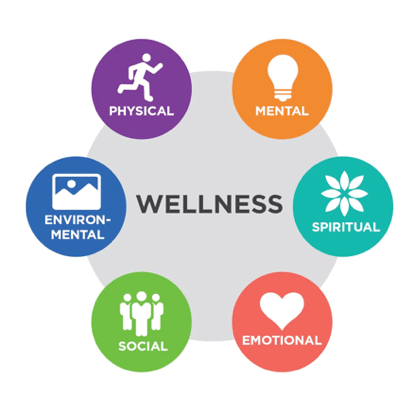The wellness industry has experienced a meteoric rise, becoming a multi-billion-dollar market that intertwines health and lifestyle. This growth sparks a pivotal debate: does the industry offer health solutions, or is it a facade for clever marketing tactics? This article delves into the evolution of the wellness industry, examining its impact from various angles, including consumer perspectives, marketing strategies, scientific validity, and ethical considerations. It aims to unravel the complex tapestry of wellness, shedding light on whether it truly enhances health or primarily serves as a sophisticated marketing machine.
Contents
The Rise of the Wellness Industry

Once a mere adjunct to traditional healthcare, the wellness industry has transformed into a formidable sector. Its evolution reflects changing societal attitudes towards health and well-being, where proactive, holistic approaches are favored over-reactive, treatment-based models. This shift is evidenced by significant market growth and diversification from fitness and nutrition to mental health and alternative therapies. The industry’s expansion is not just a health phenomenon but a cultural shift, mirroring modern society’s quest for balance and well-being.
In exploring its growth, it’s essential to understand the drivers behind this surge. Rising health consciousness, an aging population seeking quality of life, and increasing stress levels contribute to the booming demand for wellness products and services. Moreover, technological advancements have made wellness more accessible, with apps and online platforms proliferating. The industry’s growth narrative is as much about societal changes as health trends, painting a picture of a society increasingly invested in holistic well-being.
Consumer Perspectives on Wellness

Consumers view wellness as a set of products or services and a lifestyle. This perception is rooted in the growing desire for holistic health, encompassing physical, mental, and emotional well-being. For many, wellness practices like yoga, meditation, and organic eating are not just health choices but integral parts of their identity and daily routine. This deep integration into lifestyle choices highlights the industry’s impact on consumer behavior and attitudes towards health.
However, this shift towards wellness also raises questions about its inclusivity and accessibility. While some embrace wellness as a path to better health, others view it as an elitist trend, accessible only to those who can afford it. The disparity in access to wellness products and services is a critical aspect of the consumer perspective, indicating that while wellness is sought after, it is not universally attainable. This dichotomy highlights the need for a more inclusive approach to wellness, one that makes health-promoting practices accessible to a broader audience.
Marketing Strategies in the Wellness Sector

The success of the wellness industry is inextricably linked to its marketing strategies. Brands have adeptly tapped into the emotional aspects of wellness, selling not just products but aspirations for a healthier, more balanced life. This emotional appeal is bolstered by social media influencers and celebrities, whose endorsements lend credibility and desirability to wellness products. Such tactics demonstrate the industry’s proficiency in crafting narratives that resonate with modern consumers’ desires and insecurities.
At the heart of these strategies is the portrayal of wellness as an attainable lifestyle choice, often glossing over the complexities of health and well-being. The industry’s marketing prowess raises questions about consumer manipulation and the ethical boundaries of selling wellness. While these strategies have undoubtedly fueled the sector’s growth, they underscore the need for critical consumer evaluation of wellness claims and promises.
Scientific Backing or Lack Thereof

A contentious aspect of the wellness industry is the scientific basis, or lack thereof, behind its products and services. While some wellness trends are grounded in scientific research, others are criticized for lacking empirical evidence. This disparity raises concerns about the credibility of wellness claims and the potential risks of unproven health solutions. Consumers are often left navigating a maze of mixed messages, where anecdotal success stories coexist with scientific skepticism.
The reliance on anecdotal evidence and personal testimonials in marketing wellness products further complicates the issue. This approach can obscure the distinction between scientifically validated health benefits and placebo effects. The industry’s challenge lies in balancing scientific integrity with consumer appeal, ensuring that wellness solutions are effective and ethically marketed.
Regulatory Challenges

The wellness industry operates in a complex regulatory environment, often navigating a fine line between health and lifestyle products. This poses significant challenges in standardizing and regulating the diverse products and services. The lack of stringent regulations can lead to consumer protection issues, where products with dubious health benefits flood the market, potentially endangering public health.
Regulatory bodies face the daunting task of keeping pace with the industry’s rapid growth and innovation. Ensuring that wellness products and services meet safety and efficacy standards without stifling innovation is a delicate balance. The need for more robust regulations is evident. Yet, the path to achieving this is fraught with challenges, reflecting the industry’s unique position at the intersection of health, business, and lifestyle.
Economic Impacts on the Wellness Industry

The economic footprint of the wellness industry is substantial, contributing significantly to job creation and market growth. Its expansion has opened up new avenues for entrepreneurship and employment, diversifying the economy. However, this rapid growth also raises concerns about market saturation, where the influx of wellness businesses could lead to increased competition and potentially lower standards.
The economic implications extend beyond market dynamics to consumer spending. Wellness products and services often come with a high price tag, leading to debates about the affordability and accessibility of wellness. The industry’s economic impact is thus a double-edged sword, offering growth and opportunity on the one hand and highlighting issues of inequality and access on the other.
Ethical Considerations

Ethical considerations in the wellness industry revolve around balancing business interests and consumer well-being. Marketing tactics that exploit consumer insecurities or mislead with exaggerated health claims raise ethical red flags. The industry’s responsibility lies in promoting wellness in a manner that is truthful, respectful, and in the best interests of consumers.
Furthermore, the industry must address ethical concerns related to sustainability and environmental impact. As the demand for natural and organic products rises, so does the need for ethical sourcing and production. Therefore, The wellness industry faces the challenge of aligning its business practices with ethical standards that prioritize human and environmental health.
Wellness as a Social Trend

Wellness has transcended health and entered the realm of social trends, influencing lifestyles and cultural norms. This integration into social culture has led to a proliferation of wellness-related content on social media, making wellness a personal choice and a social phenomenon. The impact of this trend is far-reaching, affecting how individuals perceive health and well-being in the context of societal expectations and norms.
However, the social trend aspect of wellness can also contribute to pressure and unrealistic health and beauty standards. The portrayal of wellness as an ideal lifestyle can create a sense of inadequacy or exclusion for those who do not adhere to these standards. This social dimension of wellness highlights the need for a more inclusive and realistic portrayal of health and well-being in the public discourse.
The Bottom Line
The wellness industry, straddling the line between health solutions and clever marketing, presents a multifaceted narrative. Its influence spans economic, social, and ethical realms, reflecting broader societal shifts toward holistic health. While the industry offers promising avenues for enhancing well-being, it also navigates complex challenges related to scientific validity, regulation, and ethical marketing. As consumers, the responsibility lies in approaching wellness trends with informed skepticism, discerning fact from fiction in the quest for health.


